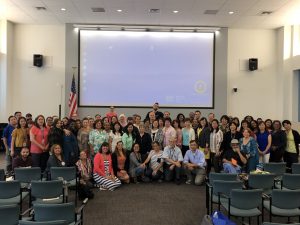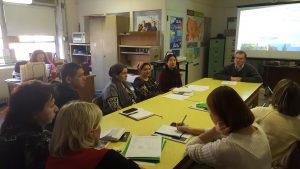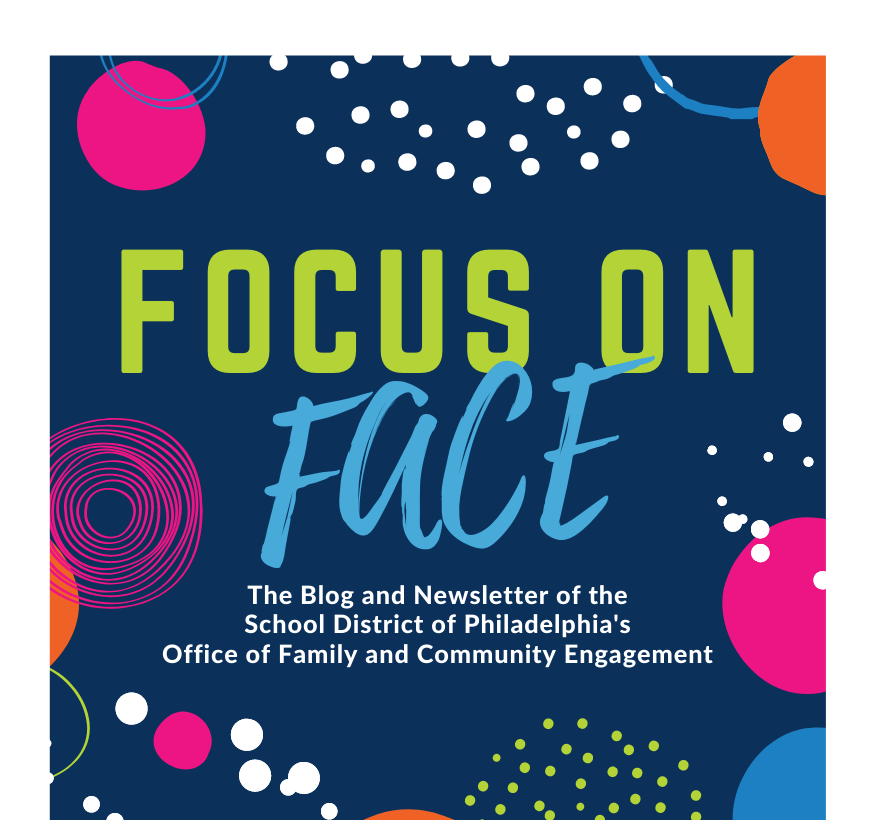Did you know that there are about 157 different languages spoken by students and family members within the School District of Philadelphia? It certainly goes without saying that there is a great diversity of multilingual families and students within the District. The Office of Family and Community Engagement’s Multilingual Family Support Team strives to provide language access to family members who speak a language other than English. One of the most valuable assets that the Multilingual Family Support Team provides is school-based Bilingual Counseling Assistants (BCAs), who, across the board, speak over thirty languages and dialects.

BCAs at a Professional Development in September 2019
Bilingual Counseling Assistants work hard each day to support families, students, and staff in schools. Many people think that BCAs only do interpretation work within schools, but BCAs themselves see their work go far beyond just that. BCA Millie Batiste says that many times when there is a language barrier, there is a lack of connection between parents and school staff; however, a BCA could help bridge such language barriers and build relationships. Vanessa Colon, a BCA, concurs: “The brain, hearts, and guts of this job is to make these connections.” Family members whose primary language is not English may feel hindrances to staying active in their children’s education, but now they can utilize the services that BCAs provide to stay engaged. A BCA not only provides the convenience and service of speaking the same home language as family members, but often also has cultural and background knowledge that can allow for a family member to be even more at ease and comfortable in his child’s school.
Bilingual Counseling Assistants work not only to serve as a bridge between families and schools, but they often go above and beyond the call of duty to really address multilingual family members and their needs. BCA Rosio Morales states that she hopes parents know that there’s someone to support them at the school, even if they can’t speak English. Families don’t have to feel like they’re alone in the process of navigating their child’s school and education, but they have a chance to speak out their own opinions and thoughts. Ms. Colon adds that she hopes people can really get to know the heart of BCAs and why they’re doing their jobs: “We want families to be cared for and know that they’re being heard.”

Uzbek BCA Heela Pyun with families at a workshop at Northeast High School
Some of the best ways to positively utilize the help of BCAs is by involving BCAs in different events at the school including events like back-to-school nights, literacy nights, volunteer orientation workshops, and Title I meetings. BCAs also host family workshops at schools surrounding various topics of interest to multilingual families such as navigating the college admissions process, how to get adjusted into school life, and much more. If family members, students, and staff members need multilingual family support, they simply need to ask! Many BCAs would urge all stakeholders to open up and talk about what they feel they need and be open to dictate their own needs so that BCAs really know how they can make an impact. BCAs are available to inform family members about what’s going on at the school and empower family members with information and the chance to participate in various school meetings and events. Ms. Batiste says, “We have to be there for the parents so the parents feel welcomed into the school.”
Bilingual Counseling Assistants are ready to help! So get connected with a BCA today to help facilitate multilingual family engagement in your school. Check out our FACE Multilingual website for more information and resources!

